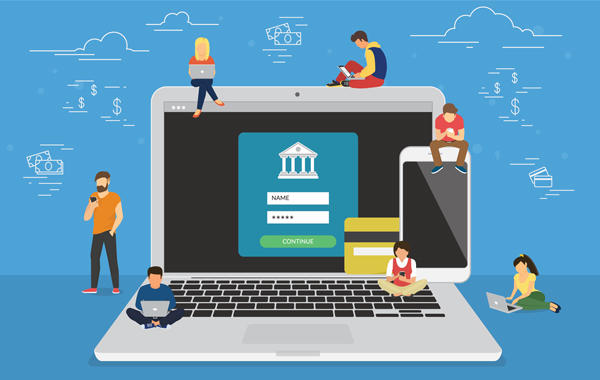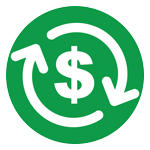 Welcome to the world of iBuying. Whether buyers and sellers are ready or not, a shocking number of companies are jumping on the bandwagon and investing in the burgeoning sector.
Welcome to the world of iBuying. Whether buyers and sellers are ready or not, a shocking number of companies are jumping on the bandwagon and investing in the burgeoning sector.
Here’s how it works: Rather than listing a property with a broker, homeowners can log onto their computers and get an offer from a iBuying company. In many cases, the company commits to the purchase within days. Then, the iBuyer quickly renovates and flips the home.
Venture-backed firms such as Opendoor (which just landed $400 million from Japanese conglomerate SoftBank) and Offerpad, as well as public startups like Zillow and Redfin, are all getting in on the action. So are traditional brokerages, including Keller Williams and Realogy, the latter of which recently announced that some of its Coldwell Banker brands will become “direct buyers” in select markets. For those brokerages, the move is largely seen as a way to add new lines of revenue to a model that’s becoming harder to maintain financially.
Although many of these iBuyers are in beta-like phases — piloting programs in such U.S. cities as Atlanta, Dallas, Orlando and Las Vegas — they’re all looking to expand rapidly. And the competition is fierce.
Zillow CEO Spencer Rascoff explained it as a natural progression for his company, telling CNBC that “we think of it like Netflix moving into originals.” But these new platforms — which come with such names as Instant Offers (Zillow) and cataLIST Cash Offer (Realogy) — are rankling brokers and can cost sellers in the form of higher commission fees. So far, none of these players has attempted to break into the New York market. But here’s a look at some of the key numbers the real estate world is watching.
$225M

Bungalo’s Greg Stewart
The amount financial firm Amherst Holdings invested to launch Bungalo. The company will kick off by purchasing 35 homes in Tampa and Dallas. “Residential real estate has lagged behind in on-demand services,” said Greg Stewart, COO of Bungalo. Zillow, meanwhile, is investing $250 million on homes just this year.
1K
The number of home “flips” logged in NYC in 2018’s first quarter. That was a 20 percent year-over-year jump — the largest increase in the country, according to ATTOM Data Solutions. In June, one nonprofit analyzed 2,700 “affordable” home sales and found that 38 percent were flips, suggesting there may be an opening for iBuying here.
10%
The percent of a property’s fair market value that a homeowner can expect to pay when selling to an iBuyer — versus the 5 to 6 percent commission agents charge. So far, the markup seems to be dissuading sellers: A Zillow exec told Inman News that although a third of sellers who request information through Instant Offers ended up selling, 90 percent of them did so through an actual agent.
50%

The rebate that Open Listings — which was bought by Opendoor in September — offers to buyers on their agent’s commission. The rebate is something of a bright spot for agents, many of whom have expressed concerns about getting cut out of deals under the iBuying model.
$1.05B
The total amount of equity raised by Opendoor, including $400 million it landed from SoftBank and a $325 million Series E fundraising round co-led by General Atlantic, Access Technology Ventures and homebuilder Lennar Corp. The company, headed by Eric Wu, is currently in 19 markets with plans to expand to 50 by 2020.
32K

Zillow’s Spencer Rascoff
The number of agents who signed a petition opposing Zillow’s Instant Offers program after the company piloted it in Las Vegas and Orlando last year. The opponents asked the National Association of Realtors to intervene to stop Zillow, arguing that sellers were being baited to accept below-market offers without advice from agents.
64
The median number of days between the time a home is listed and the time it finds a buyer in the U.S., as of June 2018. By comparison, iBuying platforms often commit to buying a home in a matter of days and then close
the transactions within 60 to 90 days.
0

The number of iBuying platforms operating in NYC, where there are fewer single-family homes, and co-op and condo boards rule. But it may only be a matter of time. “It’s such a lucrative game that everyone is trying to get a piece of it,” one real estate player told TRD in April.
